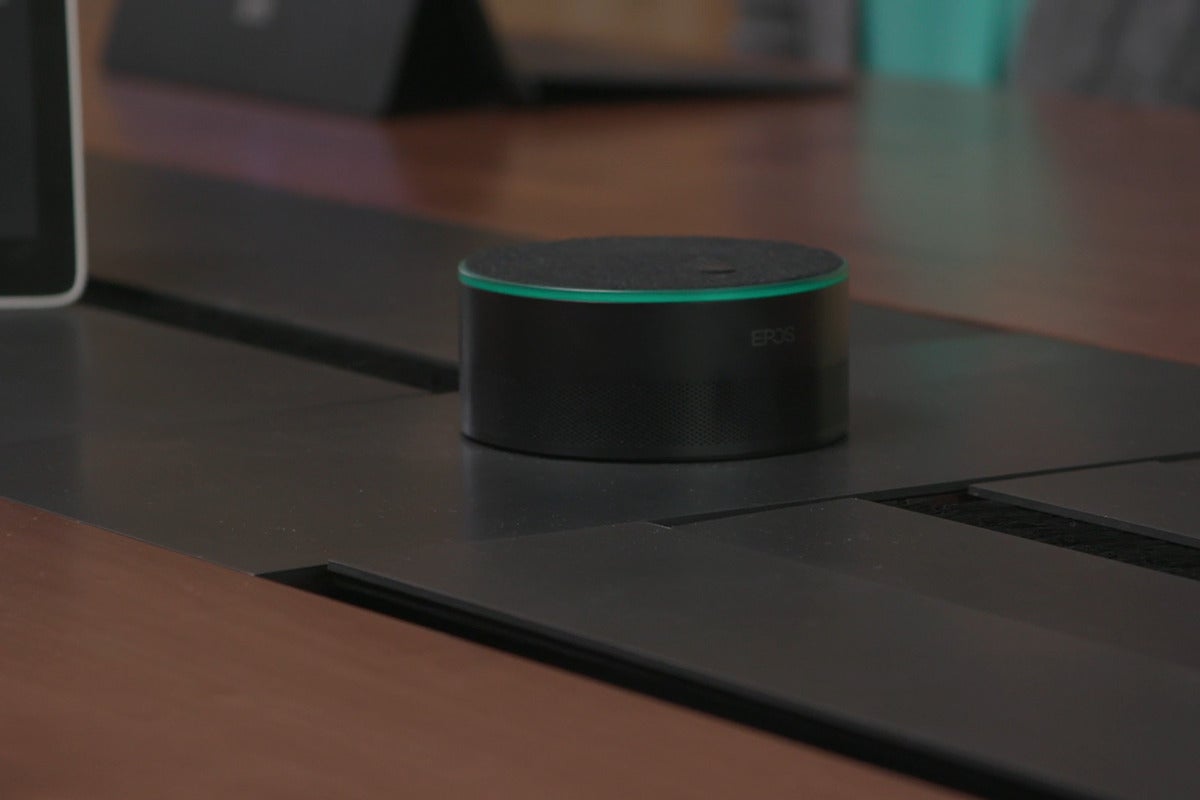
[ad_1]

Microsoft’s Cortana-powered consumer speakers are dead. Long live…Cortana powered Teams speakers?
During a Microsoft Ignite keynote by Jared Spataro, the vice president of Microsoft 365, Microsoft showed off a demonstration room powered by some of its latest hardware, including the 85-inch Surface Hub 2S, plus companion devices like Teams Rooms, which are third-party bundles of cameras and small displays for facilitating meetings.
Microsoft’s idea is that the Teams Rooms devices will manage the meetings, with voice assistance using Cortana, and capabilities like Teams casting and the Room remote app for facilitating conferences. One of the key capabilities of the Microsoft Teams software is its ability to listen to, record, and transcribe the conversation. Those capabilities are coming to Teams as a recap of the meeting, complete with a recording, transcription, and shared files.
Apparently, however, Microsoft will need external speakers, both to broadcast people’s voices and act as additional microphones for the videoconference. Enter the so-far-undisclosed Teams speaker.
The Teams speaker was shown off during a segment of the presentation in which Aya Tange, a Microsoft product marketing manager, showed off new hardware. Tange said the new speaker will allow attendees to spend less time note-taking and follow the conversation more easily. “This will help meetings become more inclusive for both remote as well as in-room attendees,” she said.
The speakers do appear to be Cortana-powered. “Cortana, end my meeting,” Tange said, ending the demonstration. Microsoft representatives hadn’t responded to a request for comment by press time.
Microsoft confirmed the speaker’s presence. “We are bringing to market next year a new category of intelligent speakers for Microsoft Teams Rooms with EPOS and Yealink as partners at launch,” a Microsoft representative said in an email.
Read more about Microsoft Ignite:
Cortana is dead, long live Cortana
In 2016, Microsoft was talking optimistically about Cortana as a consumer AI product, appearing in connected IoT devices like smart fridges as part of Windows IoT Core. Microsoft later signed a deal with what was then Harman Kardon for a Cortana-powered suite of connected-car speakers. (Harman Kardon was purchased by Samsung in 2017 for about $8 billion.) That partnership brought forth the Harman Kardon Invoke, a connected smart speaker for the desktop that competed with a number of other Alexa and Google Assistant-powered devices, though the Invoke emphasized its audio quality as much as anything else.
Cortana later became part of the Johnson Controls GLAS thermostat, but by then interest in Cortana-powered consumer devices was apparently waning. In 2019, Johnson pulled Cortana support from the GLAS, shortly after Microsoft itself decided to pull Cortana support from the Surface Headphones and the Invoke. Now, the latter will be nothing more than a bulky Bluetooth speaker when Cortana support is pulled in 2021.
Microsoft’s repurposing of Cortana is clearly veering away from consumer-focused AI, and moving toward becoming a business tool. After all, Microsoft spent its first few hours of Ignite talking about how Cortana-powered services like Play My Emails and the Daily Briefing email are rolling out for Outlook for iOS and Android. Will “connected business speakers” be Microsoft’s next hardware effort?
[ad_2]
Source link